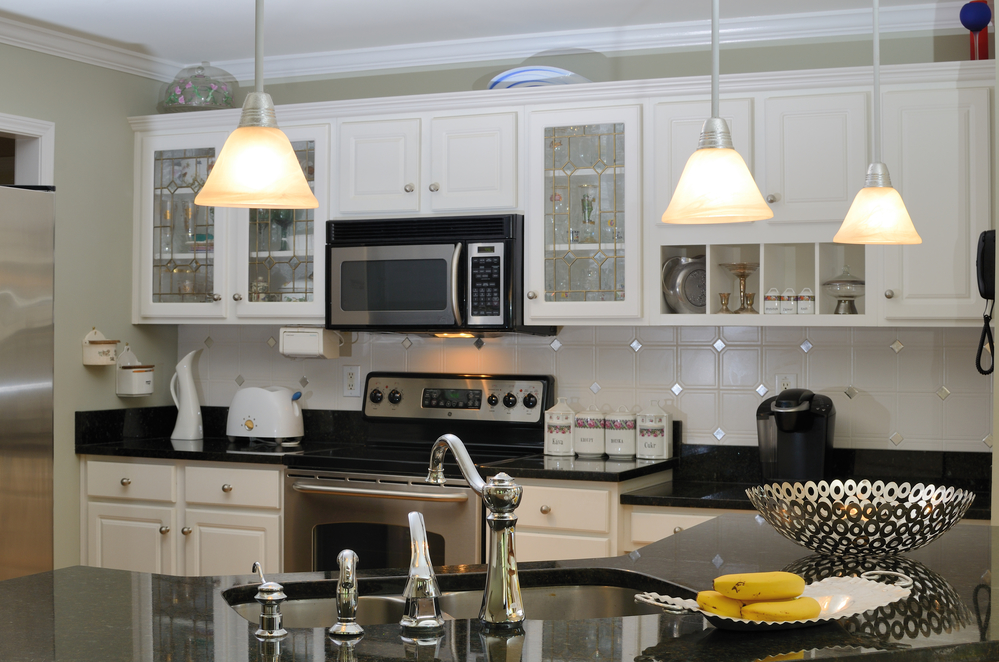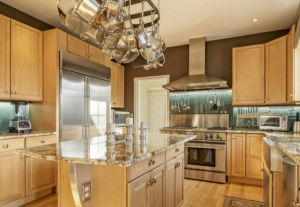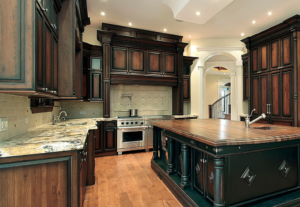
Renovating kitchens is a huge undertaking and, too often, homeowners begin the home improvement without an understanding of just how complicated it can be. These nine tips can help keep you complete a kitchen remodeling job with fewer headaches and less stress.
Think About Necessities
Although it may be fun to add extras to your kitchen, like that little wine refrigerator or a specialty faucet, try to think about what is absolutely necessary in your kitchen. For example, spending money on an extra sink that is separate from your main sink allows someone else to help prepare food or do dishes without being in the way making it much more practical than a wine refrigerator you may never use.
Research and Plan
Look at your existing kitchen and think about traffic patterns before you begin your renovation. Measure doors to be sure the appliances you choose will actually fit through them. Experts say that traffic areas should be at least 42 inches wide in homes with one cook and 48 inches in areas with more than one cook.
Hire Professionals
Of all the home improvement projects possible in a home, a kitchen renovation can be one of the most complicated. Therefore, unless you have extensive experience in overhauling kitchens, it is best to hire a qualified contractor to do the work for you.
Schematic Design
Create a drawing of your kitchen with accurate measurements before beginning the remodeling job. Include as much detail as possible, including heights of cabinets and ceilings as well as plumbing and electrical fixtures.
Fixture and Finish Specifications
Decide what type of fixtures you need and choose the exact finish you want. Decide whether you want granite countertops or another surface, whether you want stainless surfaces and what type of faucets you may want in your sink area. Remember that your fixtures and finishes should complement each other.
Contractor Estimates
Most professionals will develop design and construction documents for you that will outline exactly what is supposed to happen. Those documents may also include information on what the process is should there be any complications. In any construction, there can be snags along the way, anything from a granite countertop that comes in the wrong color or an electrical problem that prevents an appliance from working properly. Be sure that your contractor explains the process should things go wrong so there are no surprises.
Contracts and Documents
If you have hired a professional, it is critical to get all agreements in writing. Even if the contractor is someone you have known for a long time, having agreements in writing protects both the contractor and the homeowner should something go wrong.
Get Ready for Demolition
Once all the agreements have been signed and plans created, it is time to prepare for demolition of your old kitchen. Being organized can make the entire process run smoothly, so plan to have boxes for all your cookware and dishes that you can label to make it easier to replace them once the kitchen is completed. Prepare for not having anywhere to cook or do dishes for a few days.
The Dreaded Punch List
Punch lists are often about the little things such as missing knobs, paint touch-ups or broken tiles that occur after the job has been completed. Never pay the contractor’s final payment until the punch list items are completed. By withholding final payment, it is more likely the contractor will return to finish the minor things, but if the contractor does not return to complete the items, use the final payment to hire someone else.
These nine tips can help the remodeling of your kitchen go smoothly. Even if problems arise, you will have a plan in place to manage them.If you are contemplating a kitchen overhaul, complete our contact form or call 908.782.7773. One of our helpful sales associates will contact you as soon as possible to help guide you through your renovation.







